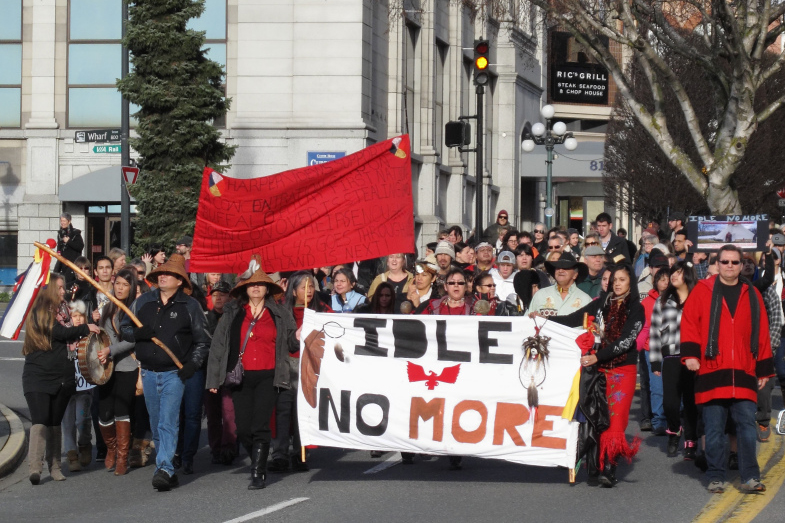Middle-class, white and privileged at its core, liberalism, from its inception in the 17th and 18th centuries, was a particular way of thinking about the world based on two radical but flawed ideas: that each individual was equal and that each was free. One size fits all. Accordingly, its proponents argued that all should share rights and responsibilities equally, and special or group-specific treatment should be shunned. But some groups are different; some groups require particular rights and accommodations. Some groups are nations.
During Attawapiskat Chief Theresa Spence’s hunger strike, many Canadians have taken to online forums, message boards and dinner tables to wonder what she and her people are after. In response to her actions, Canadians have taken up the classic liberal narrative to challenge her attempt to bring the plight of her people to the public’s attention and to meet with Prime Minister Stephen Harper to find a solution to their suffering. And while some of the commentary has simply been racist, the dominant narrative overtone remains philosophically liberal. No surprise.
Over the 300 or so years it took liberalism to fully settle in the West, its main principles became embedded in the laws of the countries in which it took hold, as well as the imaginations of the citizens who lived under those laws. Canada is no exception; we’re a liberal democracy. Our political system focuses on individual rights and freedoms, fairness, equality and the rule of law – all central tenets of liberal politics.
Read More | "Chief Theresa Spence may fall victim to liberalism’s blind spots" | David Moscrop | ?The Globe and Mail
